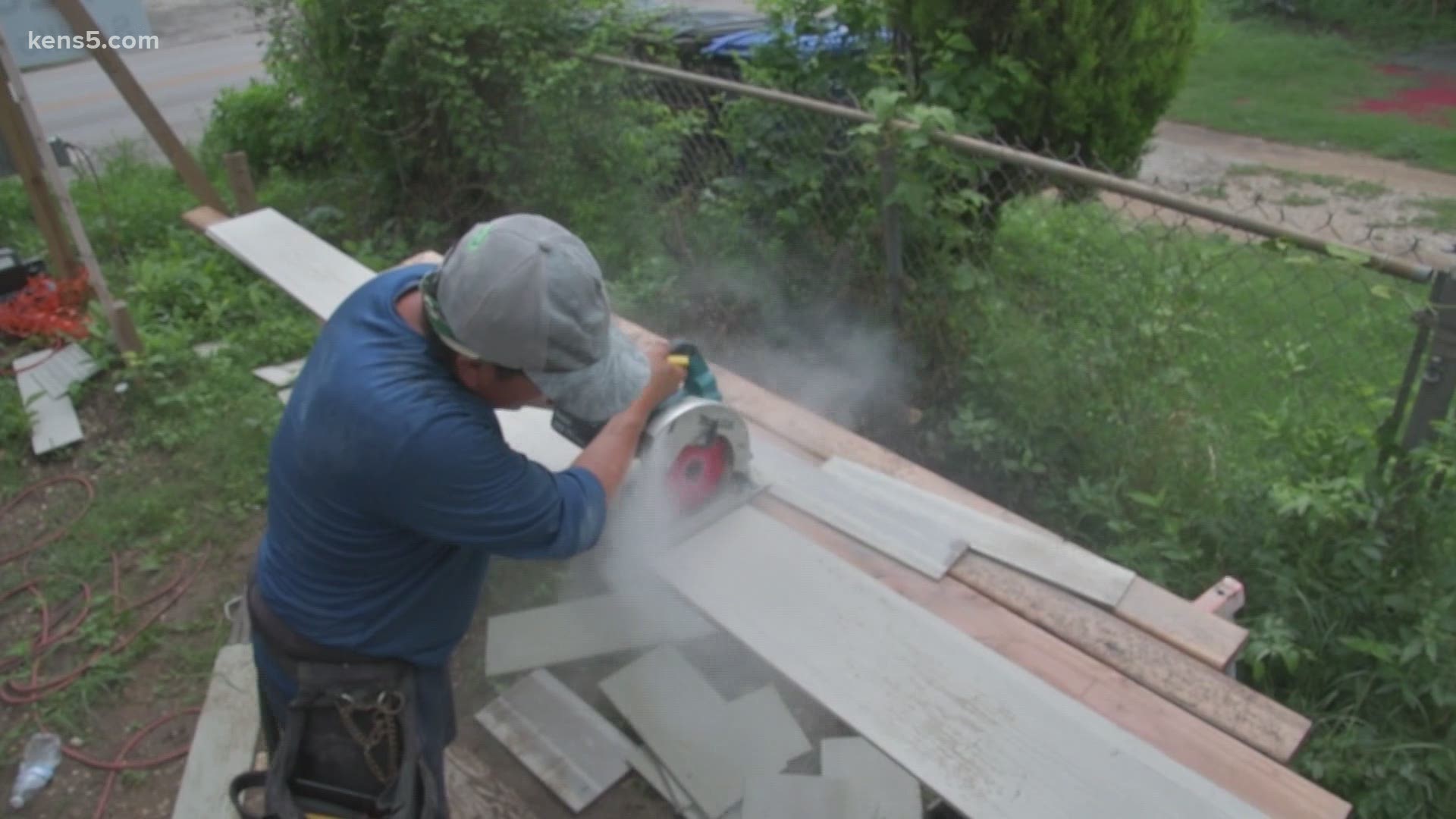SAN ANTONIO — After hitting a record high nationally mere weeks ago, lumber prices have started to come back down. But that may not mean the price of a new home is going to come down here in Texas just yet.
It’s hard to overstate just how much wood goes into building a home.
“You walk into a house like this, and you see thousands of two-by-fours and two-by-sixes that it takes to build any given house,” said Arafat Haifa, president of Roadrunner Homebuilders.
Haifa knows all too well the pivotal role lumber plays in housing. but after the past year, he says he realized he may have been taking it for granted when it became not only less affordable, but less available as well.
“We have noticed that for the past year that the price of lumber on a weekly basis, it's going up,” he said.
Haifa said that, at first, it didn’t seem like much of a problem.
You go on a given week and the price of a plywood goes up three or four dollars, you're figuring, ‘Well, I could live with that,’” he said. “But then when you go back the following week and it's another dollar then it's another $3 and here we are today; we're paying six, sevenfold what we were paying about a year ago. It really does hurt our bottom (line)."
Lumber prices peaked nationally in mid-May, reaching costs that were several times what they were the year before. Over the past month, those prices have begun falling back to earth.
But Haifa says he’s not seeing that here in Texas.
“We've been hearing that they're bringing it down. We've been hearing, 'We’re going to bring it down,’” he said. “I just have not seen any truth to that at all.”
One of his biggest concerns is that milling companies aren’t going to see the incentive to increase production.
“Now they're getting six, sevenfolds, more for half of their production. That means their bottom line never got hurt,” said Haifa. “We have set a precedent that it's okay to pay $60 for a piece of plywood, while we were paying for it $9, $10, $12 about a year ago.”
He says between that and the possibility of prices going up even further, homebuilders have to account for that risk when negotiating prices.
“If you're in the market to buy a house right now, you're paying that extra 15 to 20 to 25%. We're just paying so much to the millwork that we have to adjust our prices.”
It’s gotten to the point that he’s even advising his own son to wait for prices to stabilize before buying a home.
“If I could recommend, I think you should wait," he added. "But if you're in the market and you really need to buy a house, then unfortunately you're just going to have to pay up.”

